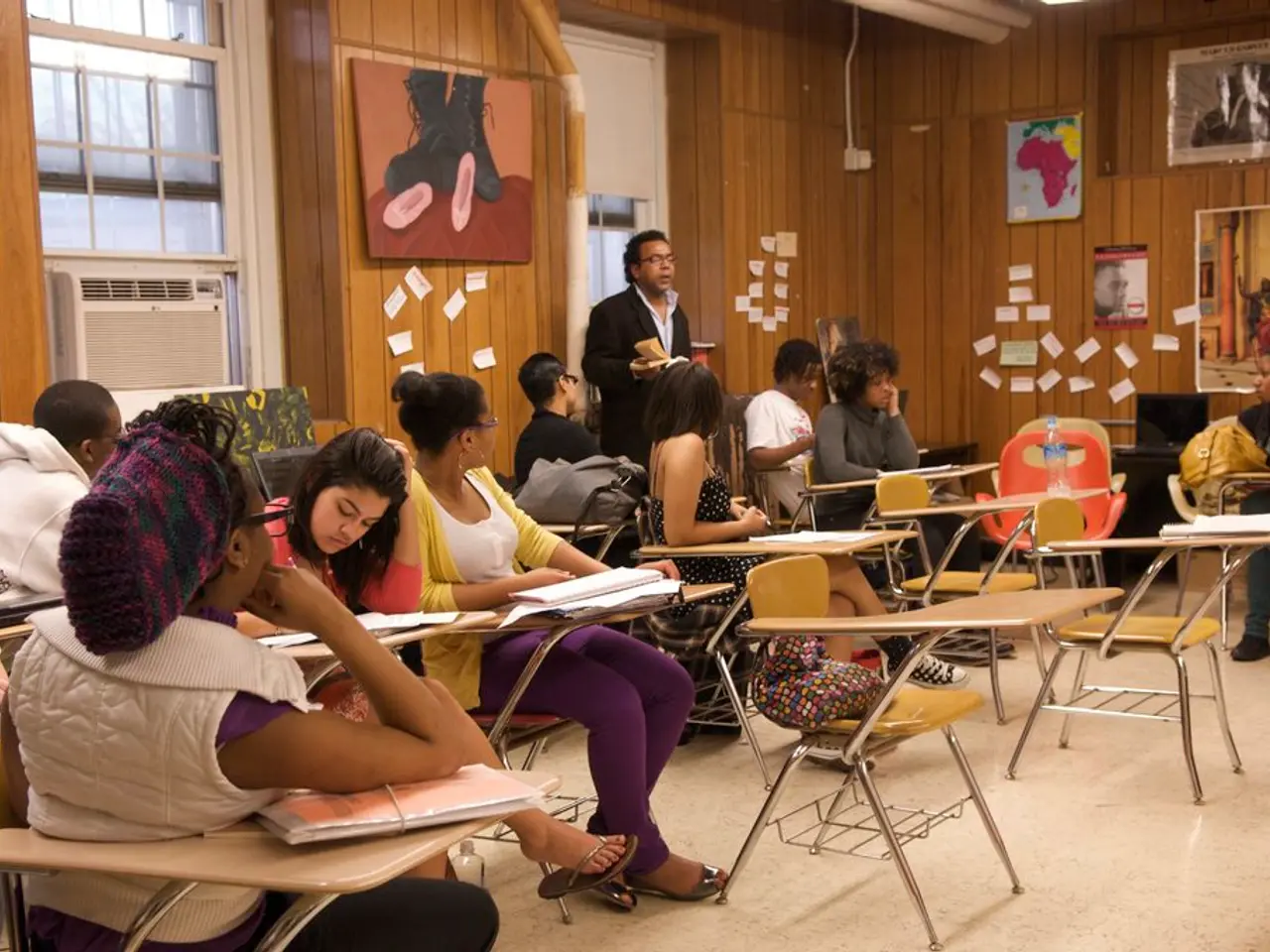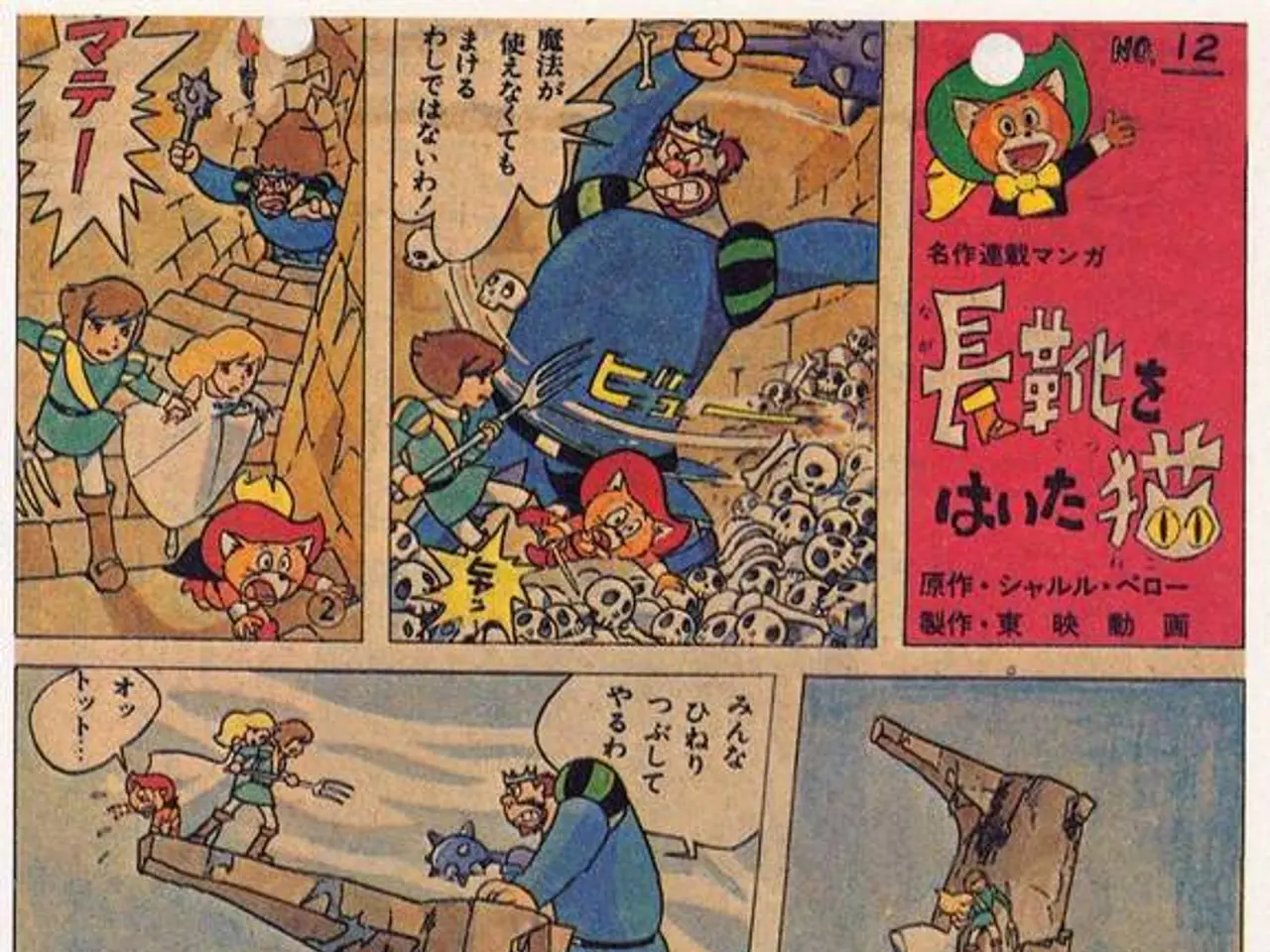Insights - Judy Harris: Engaging Learners with Authentic Resources for Meaningful Learning Outcomes
In the heart of Northern Kentucky, the impact of Thomas More College graduates in the realm of education has been significant. Judy Harris, an alumna of the institution, played a pivotal role in teacher education and introduced students to enriching experiences such as national and international travel. Despite her retirement, she remains actively engaged with the university community.
One of the most notable projects spearheaded by Thomas More College graduates was the creation of a family life curriculum based on the Bible and Catechism, designed for K-12 students. The curriculum, developed by a team that included practicing teachers and graduates of the college, was published by a Roman Catholic organization in the mid-'90s.
The K-8 portion of the curriculum was an interdisciplinary endeavour, rich in art, original music, drama, and physical engagement with the Bible as the textbook. The curriculum received official approvals for use in Roman Catholic schools, and during local pilot and national field testing, students found it engaging and easy to navigate.
Another project that showcased the college's commitment to education was the development of a K-12 curriculum about Korea for use in American schools. This project was undertaken by a team of three local Thomas More College graduates: an education professor, a public middle school social studies teacher, and a parochial middle school language arts teacher.
The curriculum, which covered the impact of the brutal Japanese conquest and occupation of Korea during World War II, used two young adult historical novels, 'Lost Names' and 'Year of Impossible Goodbyes', written by authors who lived through the occupation. The novels described family life during the occupation and the loss of Korean identities, including names and cultural treasures.
Integrating primary sources, such as artifacts, diaries, and documents, into educational curricula offers numerous benefits. These sources enhance critical thinking skills by exposing students to original materials with firsthand accounts, often presenting complex, contradictory viewpoints. This encourages learners to analyze, compare, and question diverse perspectives rather than accepting simplified interpretations, fostering independent and critical thought processes applicable beyond the classroom.
Primary sources also provide diverse perspectives, uncovering historically marginalized voices and diverse cultural narratives often absent from mainstream textbooks. This broadens students’ understanding of history and society, enabling them to appreciate complexity and inclusivity in historical interpretation.
Moreover, engaging directly with raw, original documents or data requires deeper cognitive involvement than passive consumption of secondary summaries. This active inquiry into authentic materials helps solidify knowledge retention by making learning experiential and personally relevant.
Handling original sources also develops students’ abilities to evaluate evidence, understand historical context, and construct reasoned arguments. These transferable skills enhance proficiency in academic research and everyday critical evaluation.
Integrating primary sources into education also promotes civic understanding by exploring foundational documents and evidences of a nation’s history and values. This enables students to gain a clearer understanding of societal structures and their own roles as citizens, contributing to informed, engaged participation in democracy.
In summary, integrating primary sources into education cultivates critical thinking, deeper engagement, and broader perspectives, all of which support the long-term retention of knowledge and prepare students for thoughtful citizenship and media literacy in an information-rich world. As Benjamin Franklin once said, "Tell me and I forget, teach me and I may remember, involve me and I learn."
In a unique twist, one class involved in the Korean curriculum visited a local Korean restaurant as part of the study, learning about modern Korean food. Six months after the initial assessment, a long-term assessment was conducted, and students in the seventh and eighth grades listed over 80% of the activities and applications of the unit, demonstrating the effectiveness of this approach.
The use of primary sources in education, as demonstrated by these projects, offers a powerful means of fostering critical thinking, historical understanding, and cultural appreciation in students. The legacy of Thomas More College graduates in this regard continues to shape the educational landscape in Northern Kentucky.
- The legacy of Thomas More College graduates in Northern Kentucky extends beyond education, reaching into domains such as arts and culture, as evidenced by the creation of a family life curriculum based on the Bible and Catechism.
- The opinion that education should foster personal growth and self-development is embodied in the Korean curriculum project, which utilizes primary sources like historical novels and original documents to offer students a deeper understanding of cultural narratives and critical thinking skills.
- The integration of primary sources into educational curricula, as showcased by the Korean curriculum project and the family life curriculum, encourages learners to analyze, compare, and question diverse perspectives, promoting independent and critical thought processes.
- Businesses in Northern Kentucky may benefit from the educational philosophy of Thomas More College graduates, as the focus on critical thinking, historical understanding, and cultural appreciation instills in students a sense of global awareness that is valuable in today's interconnected world.
- The effectiveness of using primary sources in education is evident in the Korean curriculum project, where students demonstrated a strong retention and comprehension of the unit even six months after the initial assessment.




